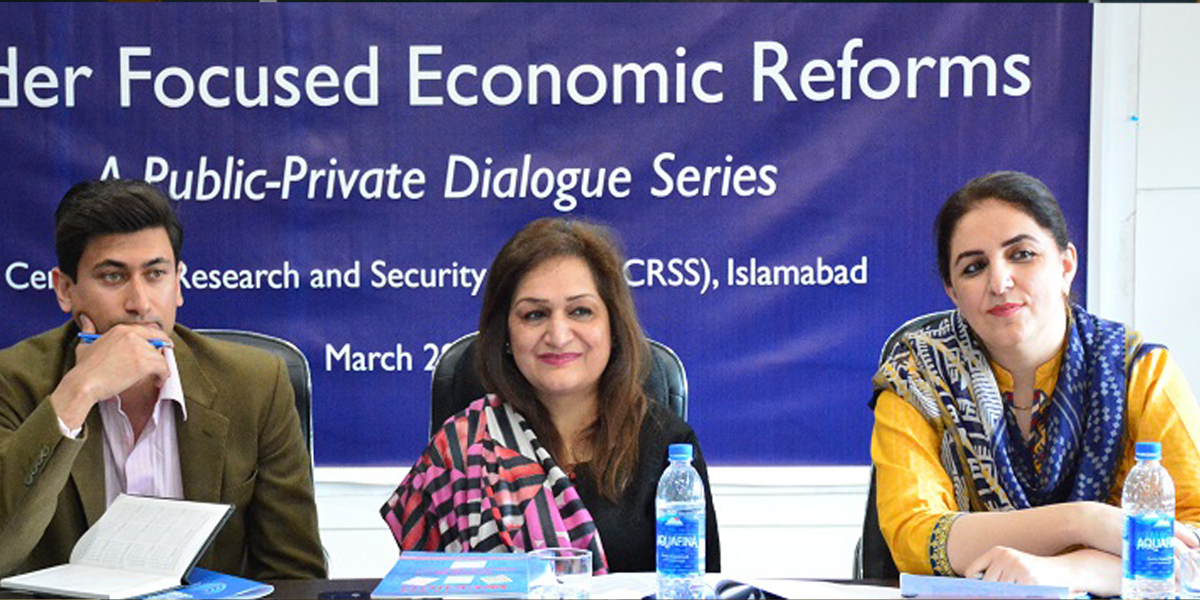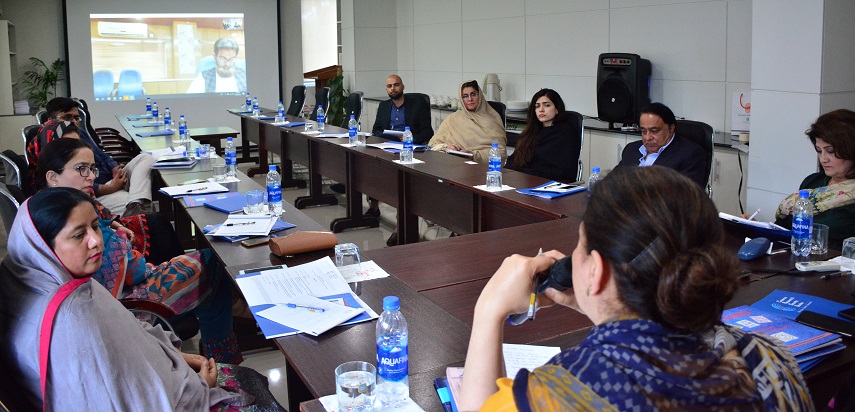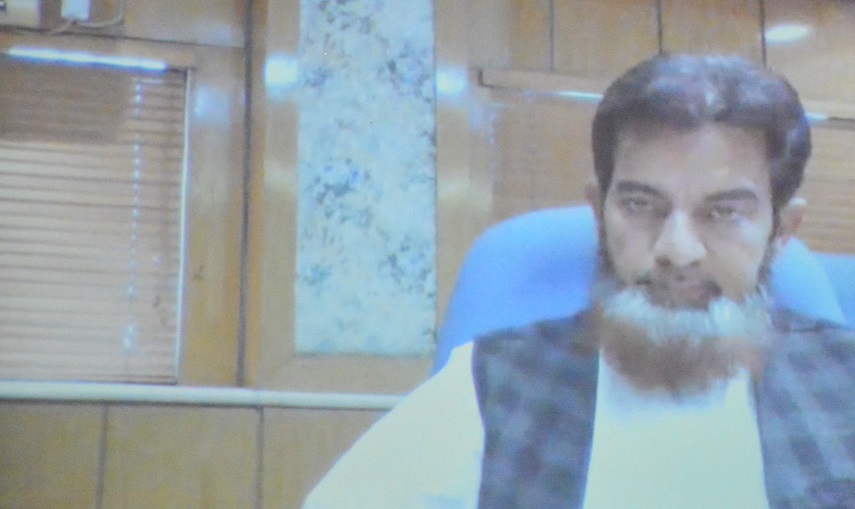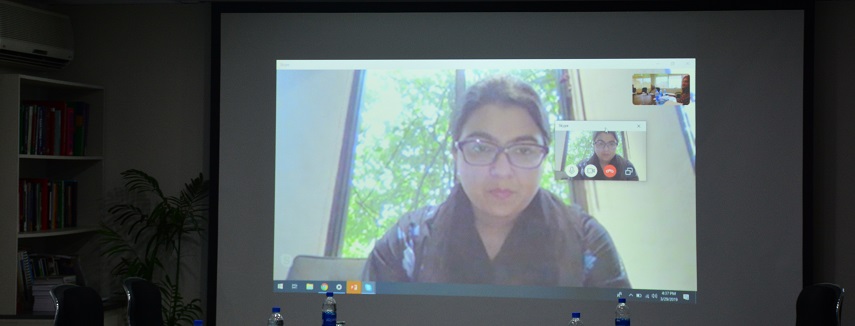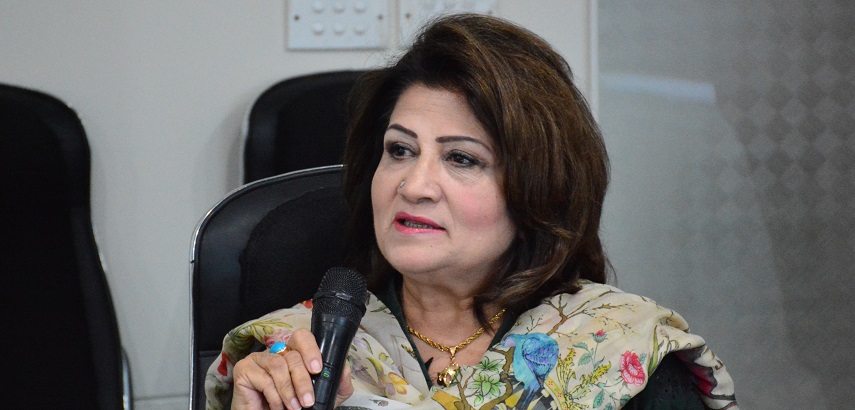Political empowerment of women can never be materialized without their economic empowerment. Economically empowered women, in comparison to men, impact the whole socio-economic fabric of the society; a lot of indirect investment can be done in human capital this way. Research suggests that by giving same amount of money to a man and woman; it is the woman that makes a greater difference – in terms of better health, hygiene and improved nutritional value of the whole household. “We are also working to bring about gender-sensitive budgeting in Pakistan”, said Ms. Shaza Fatima Khawaja, Member, National Assembly of Pakistan, though stressing that change requires continuity and stability in the long run. She was speaking to businesswomen, representatives from Chambers, State Bank of Pakistan (SBP), Small and Medium Enterprises Development Authority (SMEDA), as well as experts from Islamabad based think-tanks, in a public-private dialogue on Gender Focused Economic Reforms, organized by Center for Research and Security Studies (CRSS), Islamabad.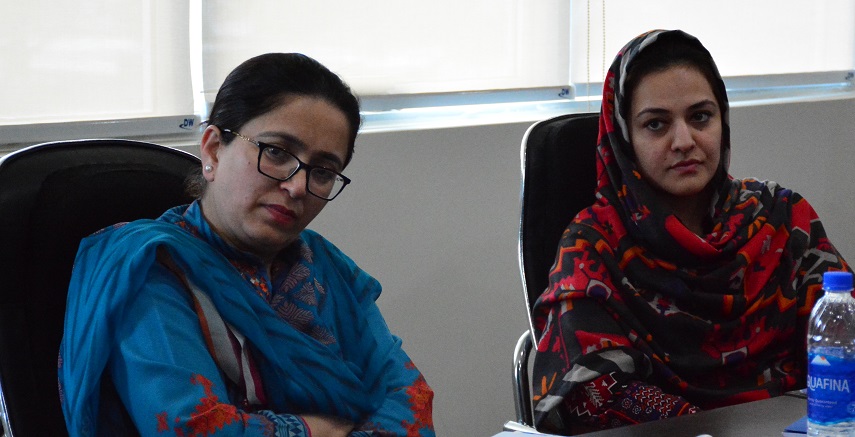
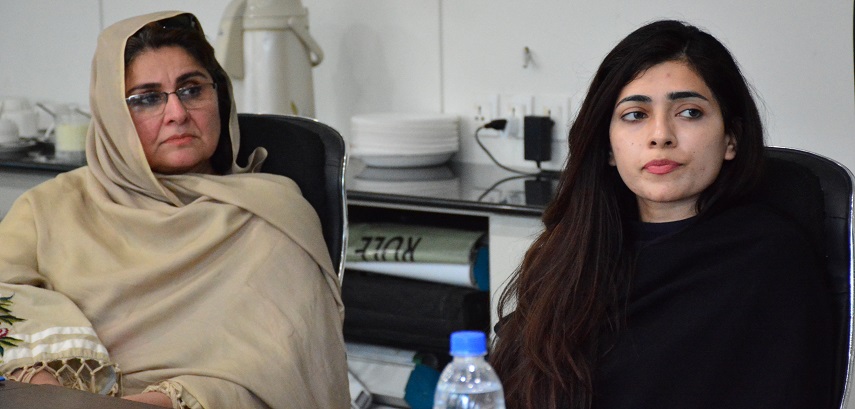
There ought to be a change in the mindset, urged Ms. Nabeela Farman, Manager, Women Entrepreneurship Development, SMEDA, who was also present in the dialogue. People, and girls in particular, must understand that one does not necessarily have to go for a job; there is much more potential in doing business. Yet, she believed that a ripple effect has been created, as more and more young people are inclined towards entrepreneurship these days. Moreover, SMEDA has been strongly recommending, and in parallel lobbying hard, for women quota in industrial estates and special economic zones. SMEDA, for the first time ever, initiated business incubation centers across the country for women’s skill development. These centers were later handed over to the private sector and are doing a very good job indeed. In all this process, we found out that access to finance and accessing new markets are amongst the major hindrances for working women or women otherwise to enter into any business activity, she added. She also apprised the participants that many government departments and other organizations are doing their part of job, regarding gender mainstreaming; however, there is a sheer lack of coordination among all these departments/organizations, which results in lesser tangible outcomes.
Mr. Imran Ahmad, Additional Director, State Bank of Pakistan, was of the view that the general perception of nothing being done would be an exaggeration. A lot is being done, still a lot more can be achieved by pulling in more effectiveness. He told participants that one of the major impediments in the way of women economic empowerment is their lack of assets’ ownership which inhibits their capacity to convert these assets into generating some economic activity without consent of a male member in the family i.e. father, brother, husband etc.
Ms. Masooma Sibtain, Former Vice President, Federation of Pakistan Chambers of Commerce and Industry (FPCCI), stated that Multan Women Chamber has initiated one-year financial literacy program for business women, so that women can understand and plan better. Additionally, she requested Mr. Imran to assist in replicating the said model across the country under the umbrella of SBP. In response, Mr. Imran promised to work on the idea; perhaps starting from the cities where SBP has branches; these branch offices can then collaborate with other local stakeholders for similar financial literacy programs.
Private sector members, representatives from think-tanks and all other stakeholders present agreed that there is a dire need to work together; public and private sector should go hand in hand, but under a clear and coherent policy, which off-course requires legislation.

